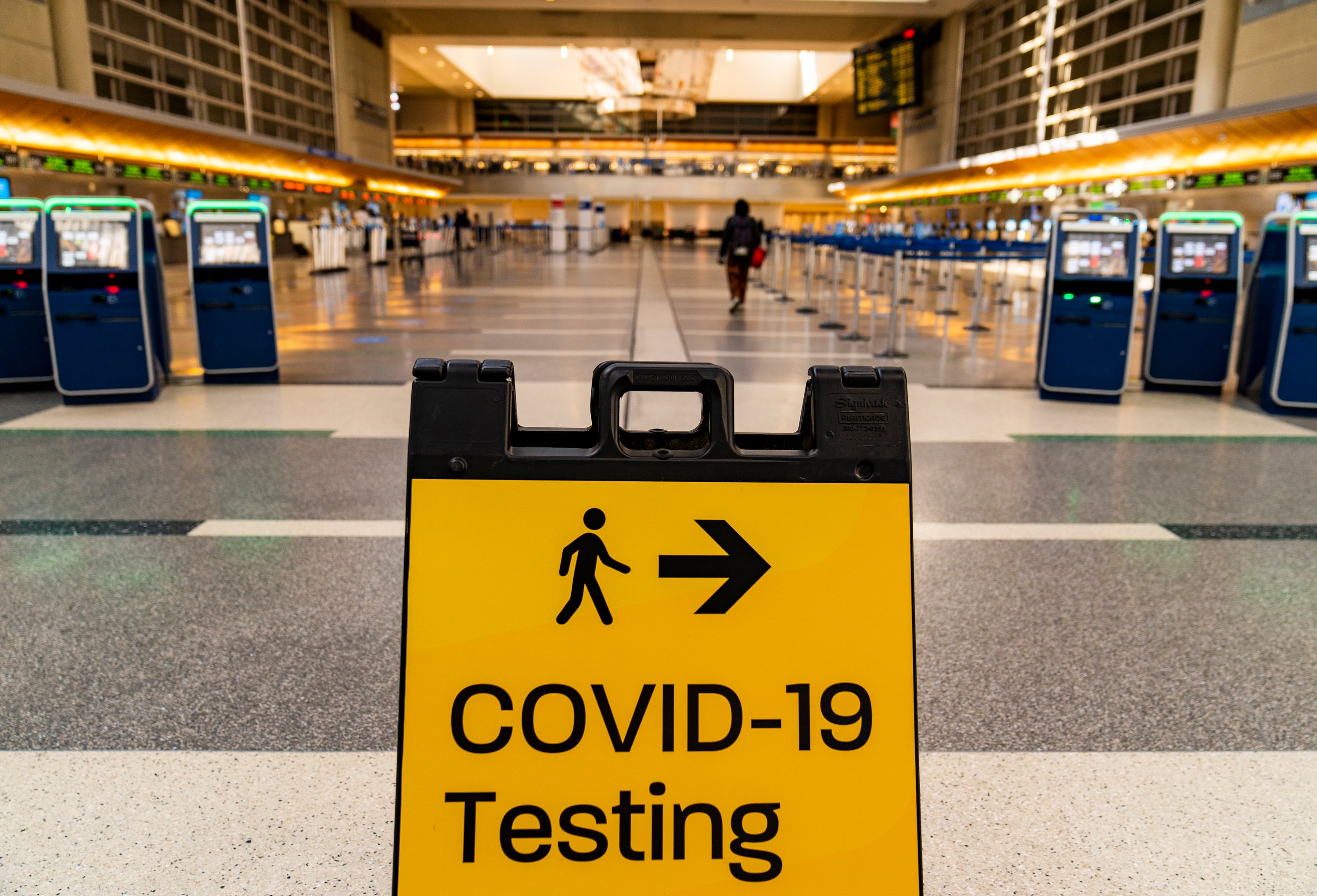New 10-minute Covid test boosts holiday hopes
Speedy new test is just as sensitive as a PCR, say developers

Your support helps us to tell the story
From reproductive rights to climate change to Big Tech, The Independent is on the ground when the story is developing. Whether it's investigating the financials of Elon Musk's pro-Trump PAC or producing our latest documentary, 'The A Word', which shines a light on the American women fighting for reproductive rights, we know how important it is to parse out the facts from the messaging.
At such a critical moment in US history, we need reporters on the ground. Your donation allows us to keep sending journalists to speak to both sides of the story.
The Independent is trusted by Americans across the entire political spectrum. And unlike many other quality news outlets, we choose not to lock Americans out of our reporting and analysis with paywalls. We believe quality journalism should be available to everyone, paid for by those who can afford it.
Your support makes all the difference.A new 10-minute Covid test could speed up the pre-travel testing process, say developers from the University of Birmingham.
The new style of testing - known as the Exponential Amplification Reaction (EXPAR) method - was found to be just as sensitive as PCR or LAMP testing, currently used in hospitals, but results show up in under 10 minutes.
The test could be deployed at “entertainment venues, airport arrival terminals, and in remote settings where clinical testing laboratories are not available,” states the University’s website, adding that developers are now seeking commercial partners for rapid licensing, to get the new style of test rolled out.
The development will be welcomed by top figures in the travel industry, many of whom have expressed frustration at the time-consuming and expensive testing process that is putting off many potential travellers.
Yesterday, tour operator Trailfinders published a blog criticising the UK’s approach to testing, asking, “Is the reason for these tests to deter travel rather than to uncover new variants? The data suggests this may well be the case.”
The EXPAR test has a similar level of sensitivity and accuracy to the most common PCR style of testing, say developers.
“The testing used swabs containing a typical range of viral loads seen during the pandemic, and had a six-minute cut-off time,” explained Professor Andrew Beggs, whose team developed the test.
“The analysis showed RTF-EXPAR’s sensitivity is equivalent to quantitative PCR testing, with a positive predictive value of 89 per cent, and a negative predictive value of 93 per cent .
“We expect to publish the full results of this testing in the near future.”
It follows the news that only 6 per cent of positive PCR test swabs had been sent off for further analysis - a key step in identifying new virus variants - during the month of July.
Join our commenting forum
Join thought-provoking conversations, follow other Independent readers and see their replies
Comments